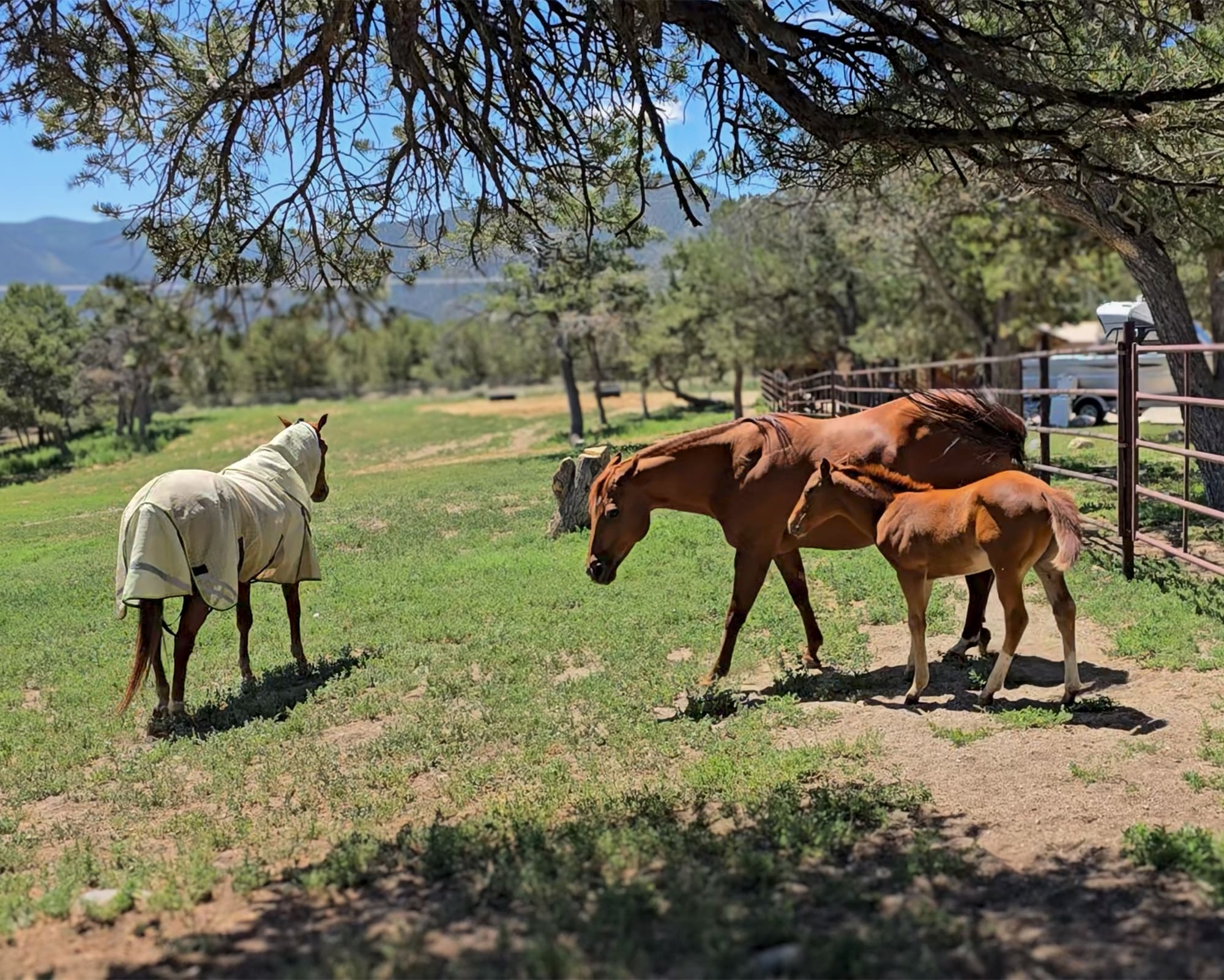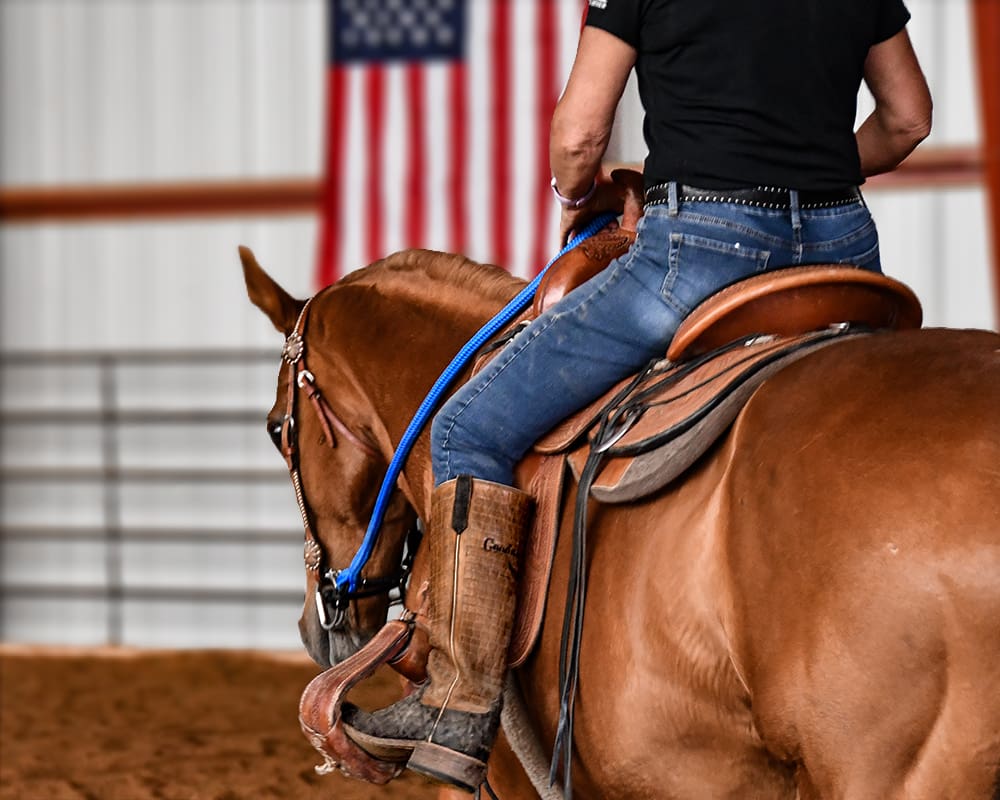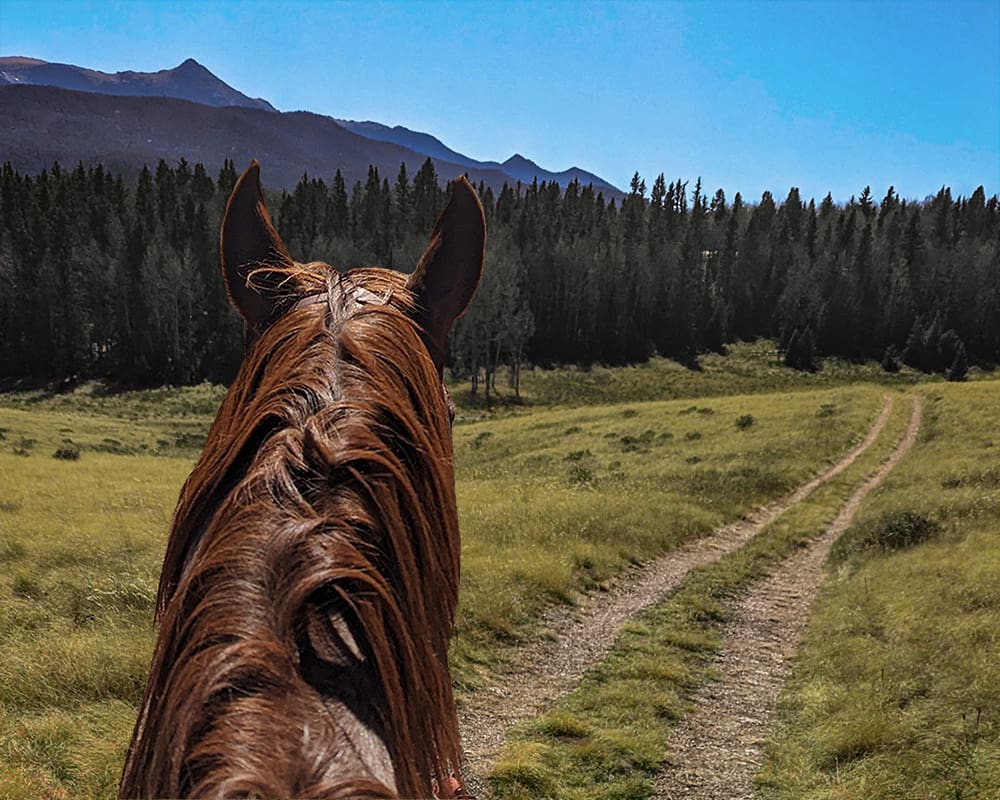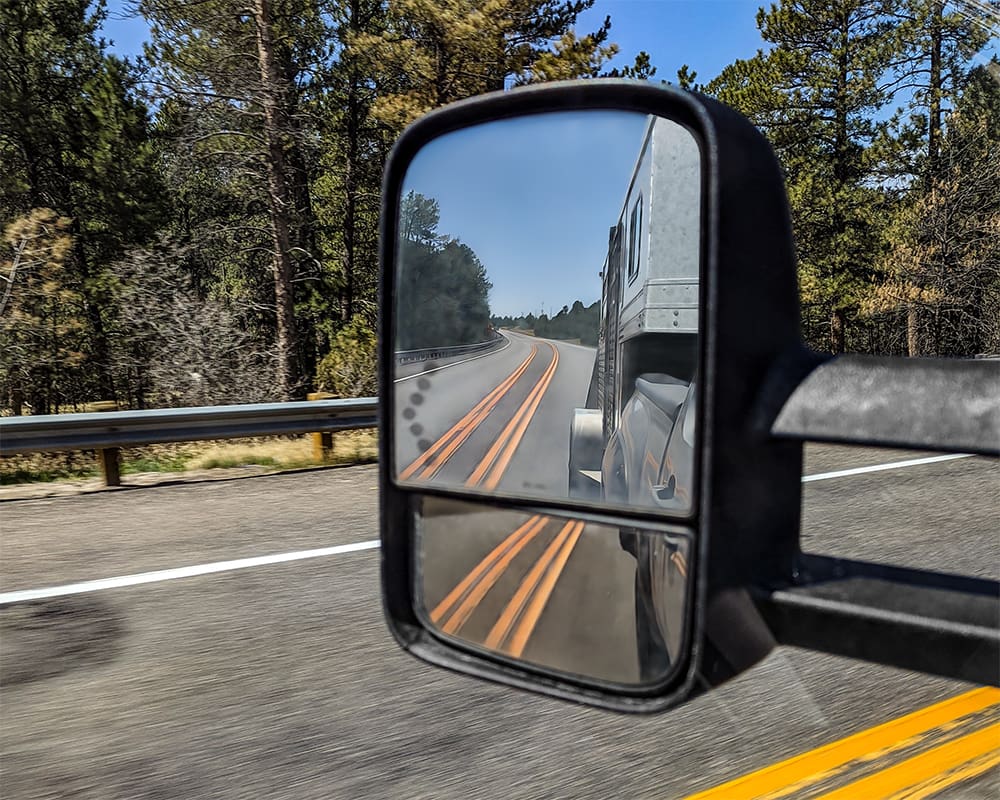When I am at clinics and expos (about 35 weekends a year), I spend a lot of time talking to people about their horses and the problems they have, trying to offer advice about how to improve their situation and hopefully give them a better understanding of why their horse is acting the way it is (and often explaining that it is actually a horse with a human problem, not the other way around). You might be surprised at how often the same questions/problems come up and I find myself repeating the same advice over and over.
A surprisingly common complaint/question is a horse owner whose horse pins his ears at her and should she be concerned at that, even though he never does anything bad? One of my first questions in this and many other “problem” scenarios is usually about what leads up to that behavior—it’s what happened before that happened that is the key to the solution. Do you know what I mean? With an alarming amount of frequency, the horse owner will finally divulge that the horse is eating at the time he pins his ears and that the owner is trying to groom, pet or “bond” with the horse while he is eating.
There’s a real simple solution to this problem, JUST DON’T DO THAT! Leave him alone when he is eating. It is not the time to be training, handling or otherwise messing with a horse and I wouldn’t blame a horse for expressing his irritation in this circumstance, would you?
Yes, its’ true that one way in which horses establish dominance in the herd is to control the food; therefore, it seems logical that if you are dominant over your horse you should be able to do whatever you want with your horse when he is eating. In fact, you often hear trainers talk about putting a person in the pen with a horse, armed with a whip, to keep the horse off the food as a way of proving once and for all that the person is dominant over the horse. Ever hear of this technique? And while I would agree that there may be extreme circumstances in which this scenario might be useful, I think that, in general, there are better ways to attain the leadership role with your horse.
It’s always good to think about what is going on from the horse’s point of view. Certainly, that is easier for some folks than for others and for many, if not most horse owners there is an overwhelming tendency to view every interaction with their horse through the prism of human behavior. That’s the easiest thing to do—we know and understand human behavior and it requires a lot more knowledge, analysis, introspection and persistence to think from the horse’s point of view. That’s what I call being hippo-pomorphic (hippo being the ancient Greek word for horse) rather than anthropomorphic (which means instilling human characteristics on an animal). Even with a lifetime of experience with horses and being an ardent student of horse behavior, I sometimes find myself being anthropomorphic with horses. Have you ever caught yourself doing that? We all do it, the questions is, can you recognize when you are doing it?
Even harder than knowing and understanding the horse’s natural behavior is being open-minded enough to consider that maybe the problem is you and not your horse. This kind of introspection is not always easy or fun but most horse owners, given enough experience, eventually come to the conclusion that they are at least part of the problem. If a horse is buddy-sour, disrespectful or fractious, it may not be a dominant or aggressive horse but the result of poor handling and training. You cannot fool horses when it comes to leadership and authority—they know it when they see it and they know it when they don’t see it.
So let’s take the pinning the ears scenario for example and consider it from the horse’s POV. First of all, meal time in a domestic herd is very stressful. In the wild, horses forage all day long, with no confinement and no piles of highly palatable and nutritious concentrates (so there is not much to fight over). In domestication, we group horses in artificial herds and usually feed them twice a day—much higher nutrient feed stuff than they would ever find in the wild, so they consume it quickly and then have to spend another 10-12 hours thinking about when they will get fed next. There’s a lot of stress not only in the anticipation of being fed, but also in the bickering and posturing that goes on in the herd. It is not unreasonable to think that a horse might want to be left in peace while he eats or that he might be a little defensive about his food. When a horse is eating it is not a good time to be messing with him—just leave him alone. If you have important business with the horse that can’t be put off until he’s finished eating, that’s one thing. And if your horse respects your leadership and authority, you should be able to interrupt him while he is eating without any displays of aggression. But that doesn’t mean it’s a good idea to bother your horse while he is eating for no good reason.
Don’t get me wrong. I think displays of aggression at feed time are problematic and it should be addressed. I have written a lot about this before—it’s a simple problem to understand and to resolve. But when a horse is otherwise polite and respectful and simply shows his irritation because you are bothering him while he is eating, I think that is a human problem, not a horse problem. Even if you struggle to be hippo-pomorphic, think about it this way, how would you feel if you sat down for an expensive meal at a nice restaurant that you’ve been looking forward to for some time and a big doofy Golden Retriever comes up to your table and starts sniffing around, slobbering on you and nosing your elbow to get you to pet him? Wouldn’t that be obnoxious? And don’t even get me started on parents that let their kids run wild in restaurants—it makes me pin my ears back!
Enjoy the ride,
Julie
Julie Goodnight’s Websites:



